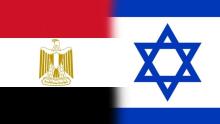Sixteen months after Sadat's visit to Israel, the Israel-Egypt peace treaty was signed in Washington. It contains nine articles, a military annex, an annex dealing with the relation between the parties, agreed minutes interpreting the main articles of the treaty, among them Article 6, the withdrawal schedule, exchange of ambassadors, security arrangements and the agreement relating to the autonomy talks. The latter issue was contained in a letter addressed by President Sadat and Prime Minister Begin to President Carter.
The foundation stone of the peaceful relations between Israel and Egypt is the "Peace Agreement between the Arab Republic of Egypt and the State of Israel" signed on March 26, 1979. The essence of the peace treaty is the termination of the state of war between the two countries, in return for an Israeli withdrawal from the Sinai Peninsula.
Since the establishment of peace between Israel and Egypt, the two countries have developed trade relations in a number of realms, such as textiles, machinery, chemicals, vegetables and cotton.
Apart from trade, the two countries have established agricultural cooperation, with an emphasis on arid-zone development, irrigation, open-field plastic covered vegetable production, veterinary vaccine production and the growth of fruit. Israel and Egypt are both involved, together with the United States, in the operation of the NUBASEED demonstration farm. The farm was established south of Alexandria, in 1987.
Since the establishment of relations, there is tourism between the two countries, with the Sinai Peninsula a popular site for Israeli visitors - especially in the summer months.

"Peace Agreement between the Arab Republic of Egypt and the State of Israel" signed on March 26, 1979.

Israel and Egypt are both involved, together with the United States, in the operation of the NUBASEED demonstration farm
